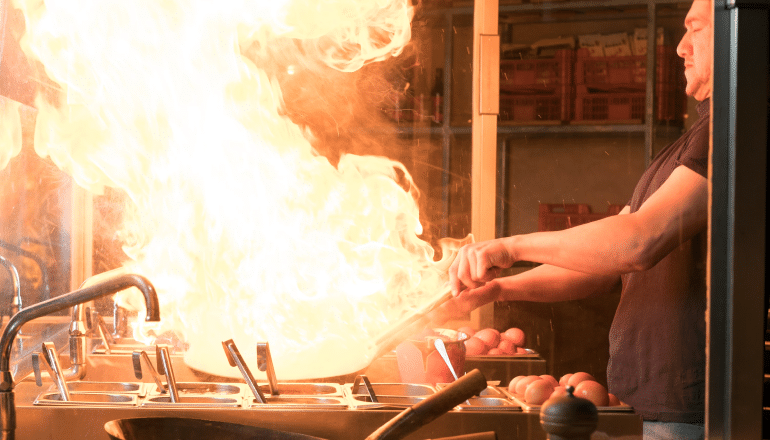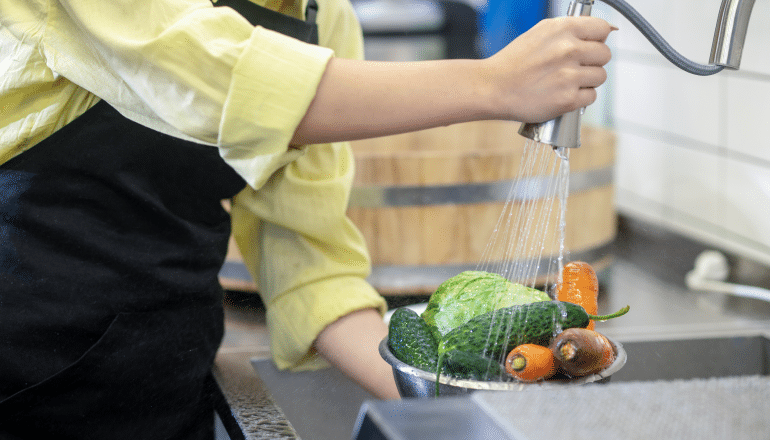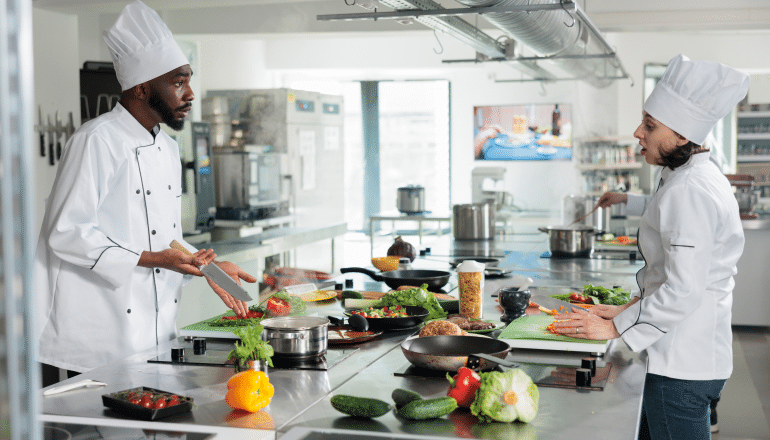
Foodborne Illnesses – How to Prevent It in Your Restaurant?
Food safety is critical to running a successful restaurant or food service establishment. No business owner wants their customers to get sick from eating their food. Not only can this harm their customers’ health, but it can also result in legal and financial repercussions for the business.
This blog post will discuss six effective ways to prevent foodborne illnesses in your restaurant. We’ll tell you everything you need to know to keep your customers safe and healthy, from implementing regular hand washing and hygiene practices to providing food safety training and ensuring that you follow safety guidelines.
By implementing these best practices, you can protect your customers, safeguard your reputation, and ensure the long-term success of your business.
Foodborne Illnesses Prevention Ways to Protect Your Customers
Preventing foodborne illnesses should be a top priority for any restaurant or food service establishment. Not only is it essential for the health and safety of your customers, but it can also protect your business from potential legal and financial liabilities. These key prevention strategies can help your customers stay safe and healthy while enjoying your food.
Ensure Regular Hand Washing and Hygiene
Regular and thorough hand washing is critical to preventing the spread of harmful pathogens and bacteria. Therefore, all staff must wash their hands thoroughly and frequently throughout the day, especially after handling raw meat, using the restroom, or touching other potentially contaminated surfaces.
Providing your staff with the right equipment and tools to maintain good hygiene, such as gloves and hairnets.
Cook Food to the Right Temperature
One of the biggest culprit of foodborne illnesses is undercooked food. As the FDA recommends, ensuring you cook all food items to the correct internal temperature is essential. It includes meats, poultry, fish, and other types of seafood. A food thermometer is necessary to ensure that all food is cooked to the correct temperature and that any potential pathogens are destroyed.
Keep Cutting Boards Separate

Cross-contamination is a major concern for food safety. Therefore, it’s important to keep cutting boards separate for different types of food to prevent the spread of harmful bacteria. For example, you should have separate cutting boards for raw meat, poultry, and fruits and vegetables. It will keep your food healthy and safe for customers.
Wash and Sanitize Equipment for Food Preparation

It is vital to regularly wash and sanitize all equipment used for food preparation, including knives, cutting boards, and other utensils. It will help prevent the spread of bacteria and other harmful pathogens and ensure your food is safe for consumption. All equipment should be thoroughly washed with soap and water and then sanitized using a solution of bleach and water or a commercial sanitizing solution.
Food Safety Training

Proper food safety training is essential for all staff members in your restaurant. Enrolling your staff in a reputable food safety training program, such as the AAA Food Handler’s food safety training course, is the easiest and most reliable way to ensure they receive proper training.
This course covers various food safety topics, including personal hygiene, cross-contamination, cooking temperatures, etc. Once the course is finished, employees will obtain a certificate of achievement showing their proficiency and comprehension of appropriate food safety protocols.
Make Sure to Separate Raw From Cooked Ingredients
Another key step in preventing foodborne illnesses is to keep raw and cooked ingredients separate. It includes separating raw meats from other ingredients during storage, as well as during preparation and cooking. It will help prevent potential cross-contamination and keep your food safe and healthy for your customers.
How to Make Sure Safety Guidelines are Followed?
It’s crucial to have a systematic approach to adhere to all safety guidelines while implementing these food safety practices. It may include regular inspections of the kitchen and equipment and monitoring staff members to ensure that they follow proper food safety protocols. It is also essential to have clear policies regarding food safety and to train all staff members on these policies to ensure everyone is on the same page.
AAA Food Hander has online programs designed to teach food service workers the necessary skills and knowledge to handle food safely, preventing foodborne illnesses.
AAA Food Handler’s food manager and food handler programs are accredited by the American National Standards Institute (ANSI) and are recognized by regulatory agencies and health departments. The following are some benefits of these food safety training courses:
✓ The courses are flexible. It can be completed at a self-determined pace, allowing food service workers to integrate training into their hectic schedules.
✓ The courses are affordable. It caters to individuals and businesses of all sizes, particularly those with limited resources to invest in costly training programs.
✓ In addition to the course, the AAA Food Handler Food Safety Training program offers several additional resources to help food service workers succeed. These include study guides, practice exams, and a customer support team available to answer their questions or concerns.
Overall, AAA Food Handler’s food safety programs are an excellent option for individuals and businesses looking to improve their food safety practices and prevent foodborne illnesses. With its flexible format, low cost, and comprehensive coverage of key topics, it can be a valuable investment for anyone in the food service industry.
